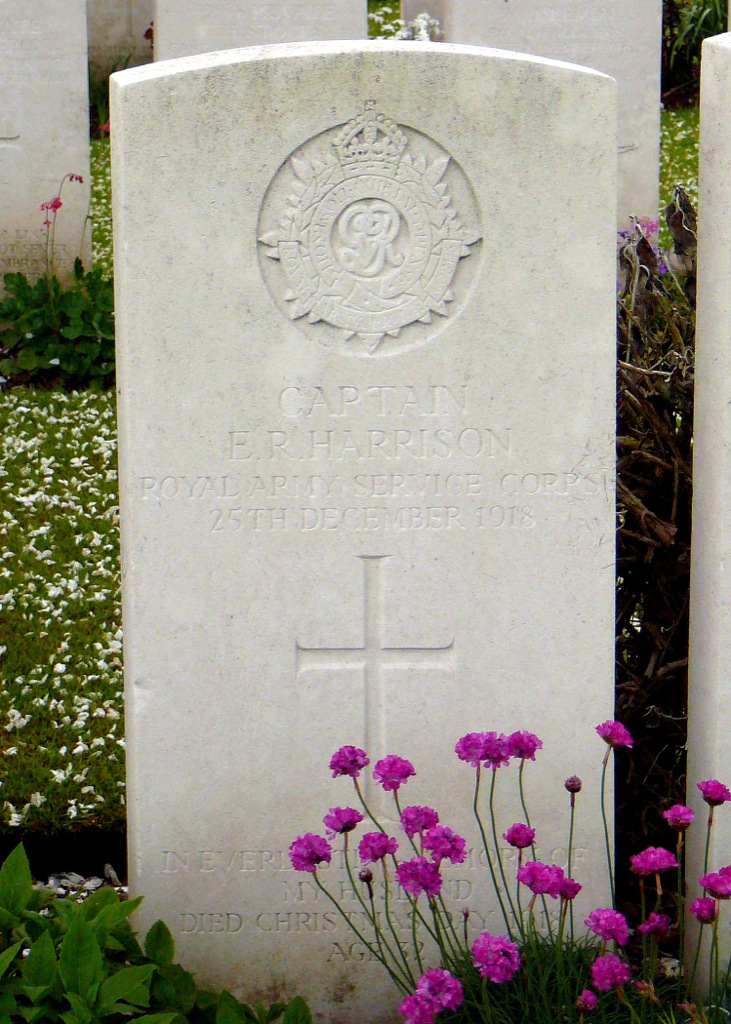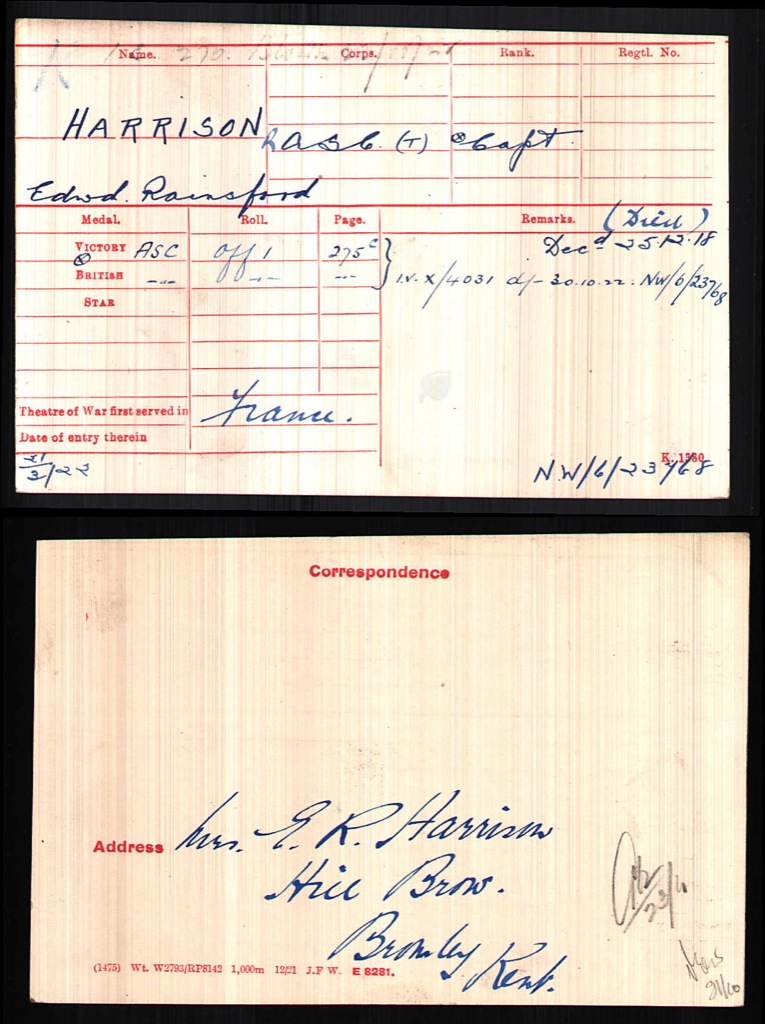Edward Rainsford Harrison, born on the 25th October 1886, was admitted to King Edward’s School in September 1899, aged twelve. His father, Edward James, was one of the Joint General Managers of Lloyd’s Bank, and the family lived at Melville Road, Edgbaston. Edward’s brother, Harold Cecil, also attended King Edward’s School and like his sibling fought in the war; after being mentioned in despatches twice and being awarded the Distinguished Service Order, Harold was wounded in France but survived the war and was sent home.
At School, Edward was towards the top end of his class in his respective subjects, but he does not appear to have been heavily involved in the sporting teams or other extra-curricular activities.
On leaving School, Edward studied at Queen’s College Taunton. He became a pin man manufacturer, and later the director of Messrs. Jarrett Rainsford Ltd, a family business that made hair pins in Birmingham. This company later went on to produce an aluminium, which, because of its properties, was used in the construction of aircraft for the war effort. The 1911 Census reveals that he was living in a boarding house at 13, Carlyle Road, Edgbaston.
In 1906, Edward was gazetted as a Second Lieutenant to the 6th Royal Warwickshire Regiment, resigning his commission in May 1913. On the outbreak of war, he volunteered for active service and re-joined the 6th RWR in August 1914. Shortly afterwards he transferred to the Army Service Corps and was immediately promoted to Lieutenant, and just weeks later to Captain. Edward served with the British Expeditionary Force in France and Flanders from May 1916, in command of A Company of the South Midland Divisional Train. In December 1917, Edward was mentioned in dispatches by Field Marshall Sir Douglas Haig for gallant and distinguished service in the field. Having contracted double pneumonia following influenza, he died after the Armistice on Christmas Day 1918 at Abbeville in Northern France, aged thirty-two. His Commanding Officer is noted to have said: “I cannot tell you how deeply regretted his (Edward) loss has been in this division… When real hard work was required, he was always there, willing and ready to carry out any orders that might be given. His sad death, has indeed, been a loss to the service.” Edward is buried at Abbeville Communal Cemetery in Northern France and is also commemorated on the Great War Memorial of St. Augustine’s Church, Moseley. Edward left his effects of £2,105 to his widow, Jessie, whom he had married during leave in 1916 and who was then was living in Kent Street, Birmingham. Jessie requested that the inscription on Edward’s headstone should read: “In everlasting memory of my husband who died, Christmas Day 1918, aged 32”.




